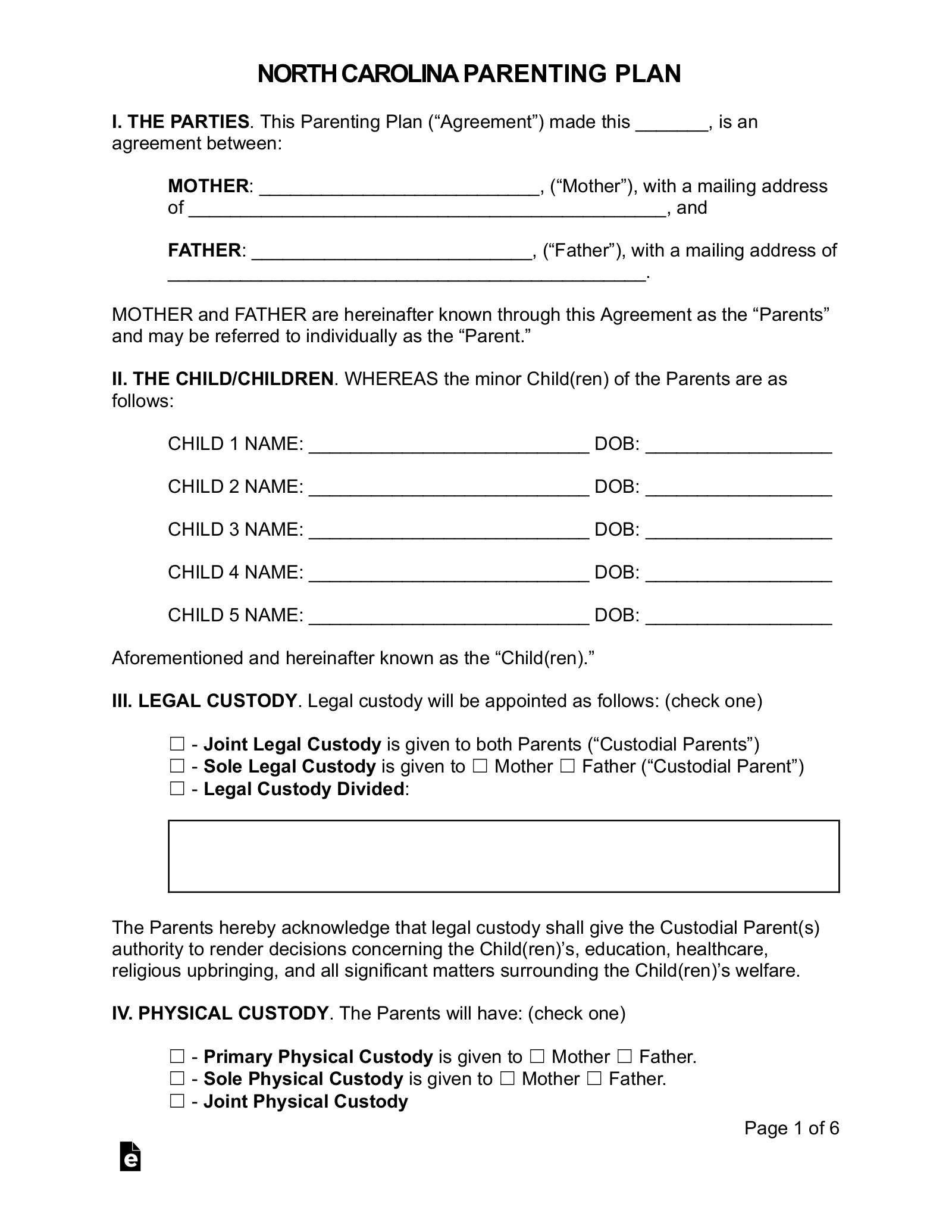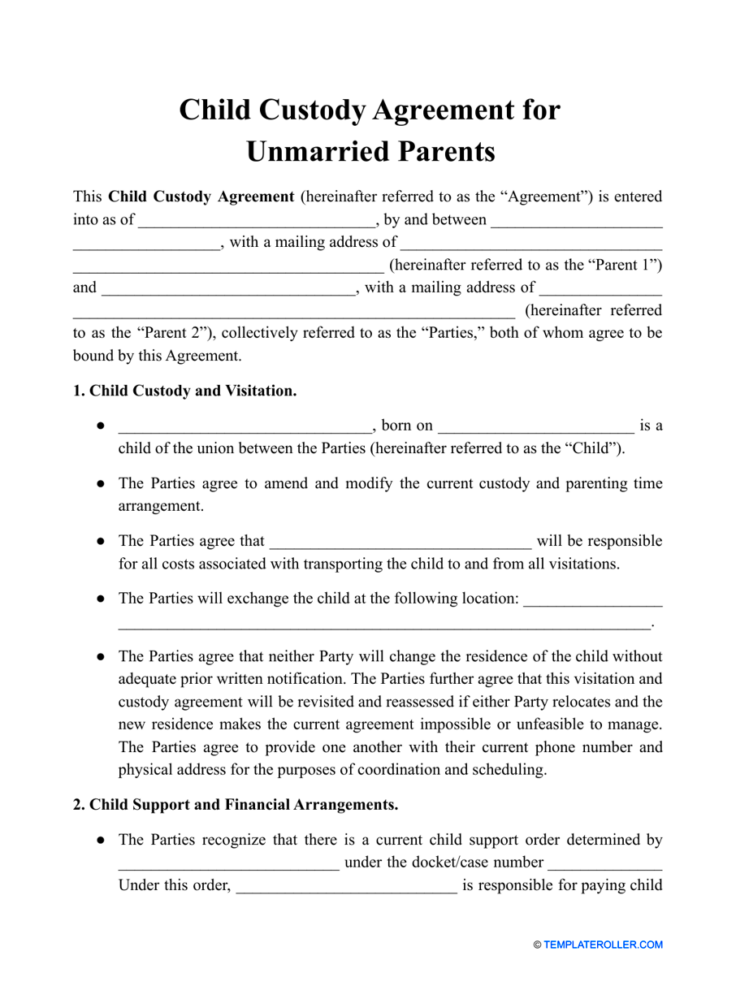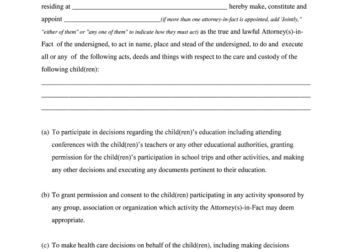Custody Laws in North Carolina for Unmarried Parents
When unmarried parents face custody issues in North Carolina, the laws may seem complex at first. However, the state’s focus is always on what is best for the child. Both parents, regardless of their marital status, have the right to seek custody. It’s important to know that unmarried parents are treated similarly to married parents in court when it comes to custody decisions.
Understanding the basics of North Carolina custody laws will help you prepare if you’re dealing with such a situation. Let’s explore how custody is determined and the differences between legal and physical custody.
How Custody is Determined in North Carolina

In North Carolina, custody decisions are made with the child’s best interest as the top priority. The court looks at various factors to ensure the child’s well-being. Unlike what some might think, there is no automatic preference given to the mother or father. Instead, both parents are evaluated based on their ability to provide a stable, nurturing environment.
Some of the key factors considered include:
- The child’s age, health, and specific needs
- Each parent’s living situation and ability to provide a safe home
- Each parent’s willingness to cooperate and support the child’s relationship with the other parent
- The relationship between the child and each parent
- Any history of domestic violence or substance abuse
The court may also consider the child’s preferences, particularly if the child is older and capable of expressing a reasonable preference. Additionally, in cases where the parents agree on custody, the court will generally approve the arrangement if it aligns with the child’s best interest.
Legal vs. Physical Custody Differences

When discussing custody, it’s important to understand the difference between legal and physical custody, as they impact different aspects of parenting:
- Legal Custody: This refers to the right to make important decisions about the child’s life, such as education, healthcare, and religious upbringing. In North Carolina, legal custody can be granted solely to one parent or shared between both, known as joint legal custody.
- Physical Custody: This involves where the child will live and who will be responsible for day-to-day care. Like legal custody, physical custody can be awarded to one parent (sole physical custody) or shared between both parents (joint physical custody).
In some cases, parents may share both legal and physical custody, meaning they collaborate on decision-making and share time with the child. If one parent has sole physical custody, the other parent typically receives visitation rights to maintain a relationship with the child.
Understanding these differences helps parents prepare for discussions about custody arrangements and know what to expect in court proceedings.
Establishing Paternity for Custody Rights
For unmarried fathers in North Carolina, establishing paternity is the first critical step toward gaining custody rights. Without legal recognition as the child’s father, it can be difficult to claim any parental rights, including custody or visitation. The process of establishing paternity ensures that the father is legally recognized as a parent, allowing him to seek custody and participate in important decisions about the child’s future.
There are several ways to establish paternity in North Carolina:
- Voluntary Acknowledgment of Paternity (VAP): Both parents can sign this form at the hospital when the child is born or later at the local child support office, voluntarily acknowledging the father’s role.
- DNA Testing: If paternity is disputed, either parent can request a genetic test to establish the biological father. This is often required when paternity is contested.
- Court Order: If paternity isn’t established voluntarily, either parent can file a petition in court, which may lead to mandated DNA testing.
Once paternity is established, the father has the legal right to request custody, visitation, and be involved in significant decisions about the child’s upbringing. It also ensures the child has access to benefits like inheritance rights, social security, and health insurance from both parents.
How to File for Custody as an Unmarried Parent
Filing for custody as an unmarried parent in North Carolina follows a structured legal process. The steps are designed to ensure that both parents have the opportunity to present their case and that the child’s best interests are the primary focus.
Here’s a step-by-step guide for filing for custody:
- Prepare Necessary Documents: You’ll need to file a formal complaint for custody in the county where your child lives. The complaint should outline your relationship with the child, current living arrangements, and why your custody request is in the child’s best interest.
- File the Complaint: Submit the completed forms to the Clerk of Court in your county. There may be a filing fee, but fee waivers are available for those with financial hardship.
- Serve the Other Parent: The other parent must be formally notified of the custody complaint. This can be done via certified mail, sheriff’s office, or through a process server.
- Attend Mediation (If Required): Some counties in North Carolina require parents to attend mediation before a court hearing. This is an opportunity to reach a custody agreement without going to trial.
- Go to Court: If mediation is unsuccessful, a judge will hear your case. Be prepared to present evidence that supports your custody request, such as living conditions, your involvement in the child’s life, and your ability to provide a stable home.
The entire process can take several months, so it’s essential to remain patient and focused on what is best for your child. Having legal representation can also be helpful during this time.
What Factors Courts Consider in Custody Decisions
When making custody decisions, North Carolina courts focus solely on the child’s best interests. To determine the best arrangement, the court evaluates multiple factors, considering both the child’s needs and the parents’ abilities to meet those needs.
The factors often include:
- Parent-Child Relationship: The court examines the existing relationship between each parent and the child. A parent who has consistently been involved in the child’s life may have a stronger case for custody.
- Living Conditions: The court will evaluate whether each parent’s living situation is suitable for raising a child. This includes the stability and safety of the home environment.
- Ability to Provide: Parents who can provide for the child’s physical, emotional, and educational needs are generally favored. This includes the ability to support the child financially and emotionally.
- Parental Cooperation: Courts look favorably upon parents who are willing to cooperate with each other and promote the child’s relationship with the other parent.
- Child’s Preference: If the child is of a certain age and maturity, their preferences may be taken into account. However, this is just one factor among many.
- History of Domestic Violence: If there is a history of abuse or domestic violence, the court may limit or deny custody to the abusive parent to protect the child’s well-being.
The goal of the court is to ensure that the child has a stable, loving environment. In many cases, the court will favor joint custody if both parents are capable of providing a safe and nurturing home. However, each case is unique, and decisions are made based on the specific circumstances.
Visitation Rights for Non-Custodial Parents
Even if a parent does not have physical custody of their child, they still have the right to maintain a meaningful relationship through visitation. In North Carolina, the law recognizes that it’s in the child’s best interest to have ongoing contact with both parents, unless there are concerns about the child’s safety. Visitation rights allow non-custodial parents to spend time with their children, fostering a strong bond.
There are two primary types of visitation:
- Scheduled Visitation: This is the most common form of visitation. The court orders a specific schedule, outlining days, times, and possibly locations for visits. This could include weekends, holidays, or summer vacations.
- Supervised Visitation: In cases where the non-custodial parent may pose a risk to the child (due to factors like substance abuse or a history of violence), the court may order supervised visits. These visits take place in the presence of a third party, ensuring the child’s safety.
Parents can agree on a visitation schedule outside of court, but if they can’t come to an agreement, the court will establish one. It’s essential to follow the court-ordered schedule, as failure to do so can result in legal consequences, including a loss of visitation rights.
In certain cases, grandparents or other family members may also request visitation rights if it serves the child’s best interest.
Modifying Custody Agreements in North Carolina
Custody agreements are not set in stone and can be modified as circumstances change. In North Carolina, either parent can request a modification to the custody arrangement if they can show that there has been a substantial change in circumstances since the original order was put in place.
Common reasons for requesting a modification include:
- A parent relocating to another city or state
- Changes in the child’s needs, such as health or education
- A parent’s change in work schedule or financial stability
- Concerns about the child’s safety or well-being in the current custody arrangement
- New evidence of domestic violence or substance abuse
The parent requesting the modification must file a motion with the court and provide evidence of the substantial change in circumstances. The court will then evaluate the new situation and determine whether adjusting the custody arrangement is in the child’s best interest.
It’s important to note that small or temporary changes in a parent’s life may not be enough to warrant a modification. The change must significantly impact the child’s well-being or the parent’s ability to care for the child.
FAQ about Custody Laws for Unmarried Parents
Do unmarried parents have the same custody rights as married parents in North Carolina?
Yes, unmarried parents have the same rights to seek custody as married parents. The court does not favor one parent over the other based on marital status. Custody decisions are made based on the child’s best interest, not the parents’ relationship status.
How can a father establish paternity in North Carolina?
Paternity can be established voluntarily by signing a Voluntary Acknowledgment of Paternity form. If there is a dispute, a DNA test may be required to establish paternity through the court.
Can an unmarried father get joint custody?
Yes, if paternity is established, an unmarried father can request joint custody. The court will evaluate both parents’ ability to care for the child and may award joint custody if it is in the child’s best interest.
Can visitation rights be denied?
Visitation rights can be limited or denied if the non-custodial parent poses a risk to the child’s safety, such as in cases of domestic violence or substance abuse. However, the court typically encourages a relationship with both parents.
Conclusion on Custody Rights and Responsibilities
In North Carolina, custody laws for unmarried parents focus on the best interest of the child, ensuring that both parents have the opportunity to play a vital role in the child’s life. Whether through establishing paternity, filing for custody, or negotiating visitation rights, parents must prioritize the child’s well-being and work within the legal framework to provide a stable, loving environment. Understanding custody rights and responsibilities helps parents navigate this often complex process, ensuring that the child’s needs remain at the center of all decisions.


